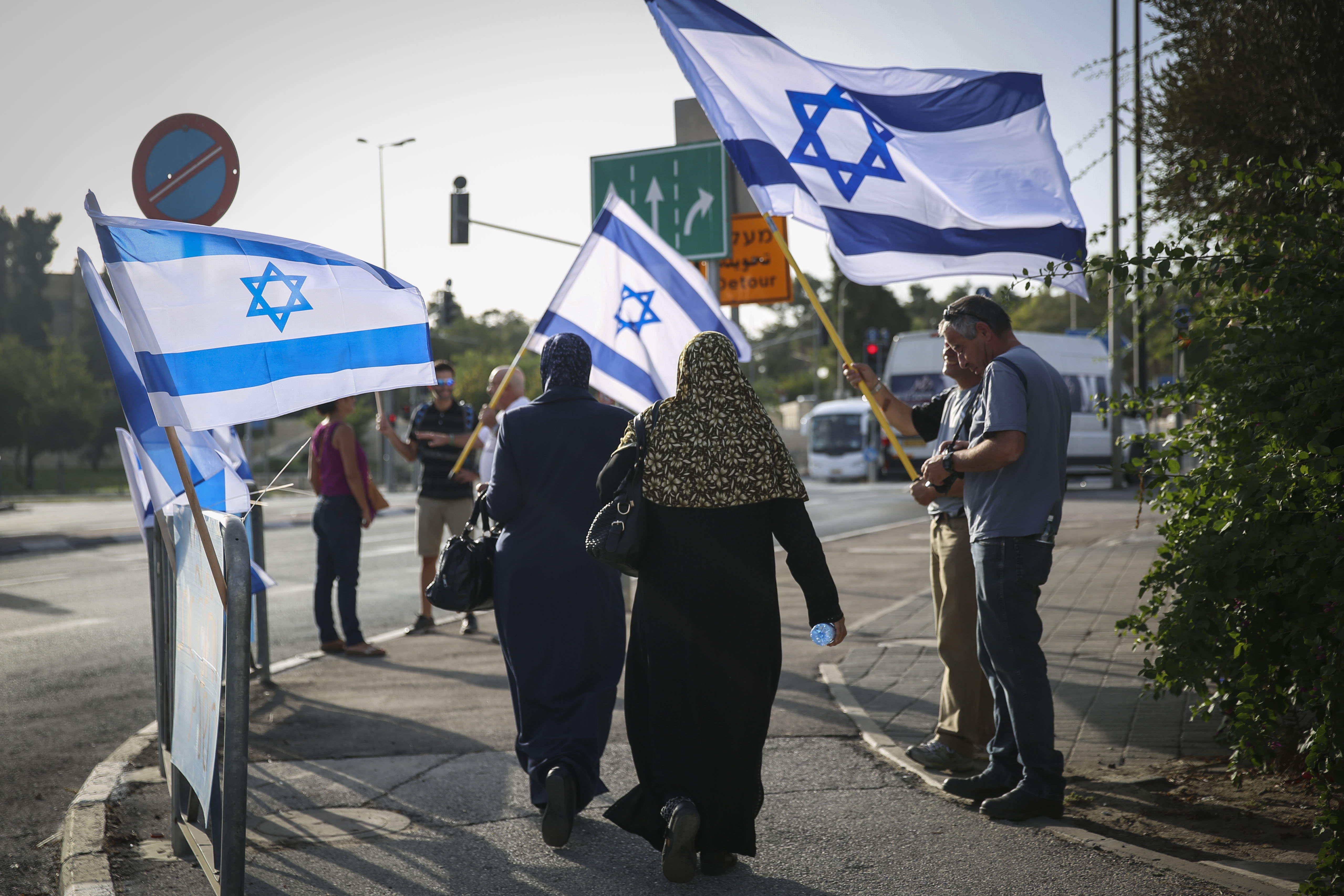Challenges and Threats: Arab Society in Israel During the War in Gaza
Conciliation between Jews and Arabs in Israel is not just a moral imperative, but also a necessary condition for maintaining peace and stability in the country.

Photo by Hadas Parush/Flash90
Arab society in Israel shares the suffering of the Jewish public following the October 7 attack—it, too, has felt this terrible pain. Arab citizens of Israel were also among those who were murdered and abducted by Hamas. Meanwhile, conflict and tension have spread from the Gaza border region to other arenas, including the Lebanese border and the West Bank. The threats from both the north and the south do not differentiate between Jewish towns such as Metula, Nahariya, or Sderot and Arab towns such as Arab al-Aramshe, Kafr Qasim, or Rahat.
Indeed, the Arab public has also been hurt and bloodied over the last month by the Swords of Iron War. The sense of personal safety among Arabs has taken a further blow, after several years of sharp deterioration due to failed government policy, including institutional neglect and disfunction, in response to rising violence and crime. Despite this, a recent survey published by the Viterbi Center for Public Opinion and Policy Research at the Israel Democracy Institute found that the sense of belonging and identification with Israeli society among Arabs has actually increased: 70% of Arab citizens of Israel now say they feel part of Israel and its problems, compared with 48% in June 2023. This is the highest such score in the Arab population since the Center began measuring it some 20 years ago.
Declarations of this nature have also been evident among the Arab leadership in Israel following the events of October 7. A large proportion of Arab Knesset members and mayors condemned the massacre, in which the attackers did not discriminate between Jews and Arabs. The head of the Ra’am party, Mansour Abbas, publicly stated that the attack was fundamentally opposed to the values of Islam, which he said were based on peace and dialogue rather than violent acts of terror. MK Abbas also noted that Arab society in Israel has a significant role to play, particularly at the current time, in promoting acceptance, conciliation, and peace.
With Israel in a state of war, the Arab public has been staying quiet and exercising restraint, despite various attempts at provocation which have included warnings of a repeat of the clashes of 2021. The delicate relations between Arabs and Jews in the country have become especially sensitive. Suspicion toward Arab citizens is on the rise, and Arabs fear the consequences of overtly showing their Arab identity or even speaking Arabic in public spaces. There are also fears about posting in Arabic on social media, regardless of the content, and about expressing any form of sympathy for the civilian population in Gaza.
According to the Israel Police, more than 190 Arab citizens have been detained for questioning since the beginning of the war, mainly for expressing views on social media or for attempts to demonstrate that were classed as attempted incitement, even if in many cases these were just expressions of dismay over the suffering of civilians in Gaza or criticisms against the harming of innocents. Some of those detained have been people who make key contributions to Israeli society, such as doctors, pharmacists, nurses, and teachers. These events raise a serious question of whether the voice of Israeli democracy is being silenced during the war.
In practice, then, Arab society in Israel is dealing with challenges on three different levels: the external threat of rocket fire from the north and the south, just like their Jewish peers, alongside the unique challenges of violence and crime within Arab society and this policy of “silencing” that is being radically applied to Arab citizens in Israel. This combination of challenges may ultimately serve to deepen the divide between Jews and Arabs when the war is over, and impinge on the ability of these two peoples to find a balanced way of living together.
Particularly during these difficult times, conciliation between Jews and Arabs in Israel is not just a moral imperative, but also a necessary condition for maintaining peace and stability in the country. There is no doubt that without conciliation and mutual understanding, the trends we are seeing today will continue to tear our society apart and pour salt on wounds that need time to heal. Israel’s citizens, both Jews and Arabs, have a responsibility to take an active role in the struggle toward conciliation and a peaceful, just coexistence in our shared society.
